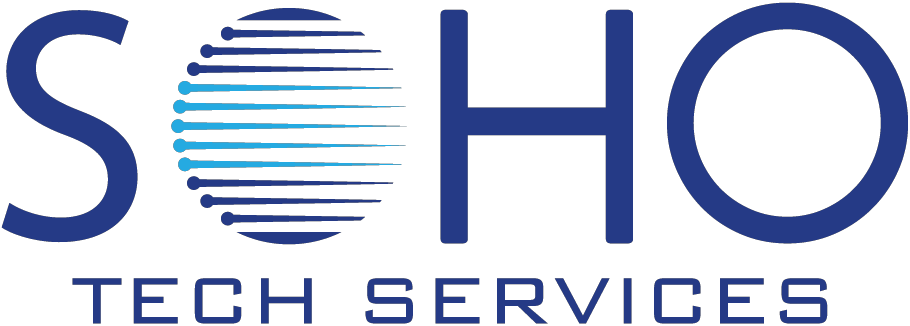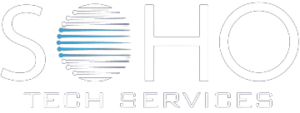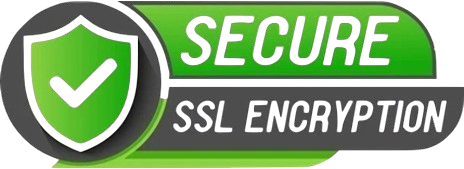
Credentialing Best Practices for Healthcare Providers
In the fast-paced world of healthcare, credentialing is a vital process that ensures medical professionals meet the required qualifications and standards to provide patient care. Without proper credentialing, medical practices can face severe financial consequences, including denied claims and delayed payments. For healthcare providers, particularly in places like Boca Raton and Palm Beach, credentialing can be complex and time-consuming, requiring precise documentation and compliance with various payer requirements.
In this article, we’ll explore the best practices for credentialing, the common challenges healthcare providers face, and how professional credentialing services, such as those offered by SohoTech Services, can alleviate the administrative burden on your practice.
Why Credentialing is Critical for Healthcare Practices
Credentialing goes beyond simple verification. It is a thorough process of evaluating a healthcare provider’s qualifications, experience, and professional background. Without proper credentialing, medical professionals cannot legally offer services or receive payment from insurers. Furthermore, credentialing plays a key role in maintaining quality care standards in hospitals, clinics, and private practices.
In Boca Raton, Palm Beach, and across the U.S., credentialing helps ensure that medical professionals meet all state and federal regulations, are appropriately trained, and are covered by insurance companies. Credentialing Best Practices for Healthcare Providers directly impact a medical center’s financial stability and reputation. Healthcare providers can avoid costly mistakes by adopting efficient credentialing strategies.
Common Challenges in Credentialing
For many healthcare practices, credentialing presents several challenges. Some of the most common include:
- Documentation Errors: Small errors in documentation can lead to delays in the credentialing process or even outright denials by insurance payers.
- Compliance Variations: Every insurance payer has its own set of rules, making compliance difficult, especially for smaller practices without dedicated credentialing staff.
- Renewals and Deadlines: Failure to maintain up-to-date credentials can result in disruptions to patient care and revenue.
- Lengthy Processes: Credentialing can take anywhere from a few weeks to several months, leading to potential delays in revenue collection and patient onboarding.
By addressing these challenges head-on with efficient processes, healthcare providers can streamline credentialing and avoid costly delays.
Credentialing Best Practices for Streamlining the Process
To help healthcare providers navigate the complexities of credentialing, we’ve compiled some of the best practices for effective credentialing:
- Maintain Organized Documentation: Ensure that all necessary documents, such as licenses, certificates, and proof of education, are easily accessible and up to date. This will help expedite the credentialing process.
- Use Credentialing Software: Leveraging technology to automate the process can drastically reduce human error and track important deadlines.
- Ensure Timely Renewals: Set reminders for when credentials need to be renewed. This will help prevent costly lapses in certification and ensure that your practice remains in good standing.
- Regularly Update Credentials: Make sure credentials are regularly updated with new certifications, qualifications, or changes in professional status. Keeping these records current will avoid unnecessary delays.
- Outsource Credentialing Services: Professional credentialing services, such as those provided by SohoTech Services, can manage the entire process, ensuring compliance and timely renewals.
Following these best practices can help reduce the administrative burden and allow healthcare providers to focus more on patient care and less on paperwork.
How Credentialing Affects Revenue
Poor credentialing can significantly impact a medical practice’s revenue cycle. One of the biggest risks of incomplete or incorrect credentialing is the denial of insurance claims. If a provider is not properly credentialed with a payer, the claim will be denied, resulting in delayed payments or, in some cases, no reimbursement at all. This can have a cascading effect on cash flow, affecting a practice’s ability to maintain operations and invest in patient care.
By adhering to Credentialing Best Practices for Healthcare Providers, medical centers can minimize claim denials, ensuring that they remain financially stable and continue delivering quality care to patients.
How Professional Credentialing Services Help Medical Practices
Outsourcing credentialing to a professional service can help medical centers, hospitals, and clinics save time and money. At SohoTech Services, we specialize in managing the complexities of credentialing, allowing healthcare providers to focus on what truly matters: patient care.
Here’s how outsourcing credentialing services can benefit your medical practice:
- Expert Handling: Credentialing experts are familiar with the specific requirements of insurance payers, ensuring timely submissions and compliance.
- Reduced Administrative Burden: By letting professionals handle credentialing, your staff can focus more on delivering quality care and less on paperwork.
- Faster Revenue Collection: Ensuring timely credentialing helps reduce delays in payments, providing financial stability for your practice.
- Long-Term Compliance: Outsourcing ensures that your practice remains in compliance with payer requirements, avoiding penalties and revenue loss.
Partnering with SohoTech Services for credentialing solutions guarantees peace of mind, knowing your practice is in capable hands.
Human Impact of Proper Credentialing
Beyond operational efficiency, proper credentialing has a direct impact on patient outcomes. With less time spent on administrative processes, healthcare providers can dedicate more time to patients, improving care delivery and satisfaction. Additionally, patients can feel confident knowing that the professionals treating them are qualified and verified to meet the highest industry standards.
Credentialing not only supports financial stability but also enhances the trust between healthcare providers and their communities. By implementing best practices in credentialing, medical centers and clinics create a positive ripple effect that extends far beyond the bottom line.
Call to Action: Streamline Your Credentialing Process Today
Credentialing can be a complicated, time-consuming process, but it doesn’t have to be. SohoTech Services offers expert credentialing solutions that help medical centers, clinics, and hospitals streamline their processes and maintain financial stability. Our experienced team is ready to help your practice navigate the credentialing process, ensuring compliance and reducing administrative burden.
Contact SohoTech or book a meeting slot today to learn how our credentialing services can help your practice grow, enhance patient care, and improve operational efficiency. Let us handle the paperwork, so you can focus on what matters most: providing quality healthcare.


